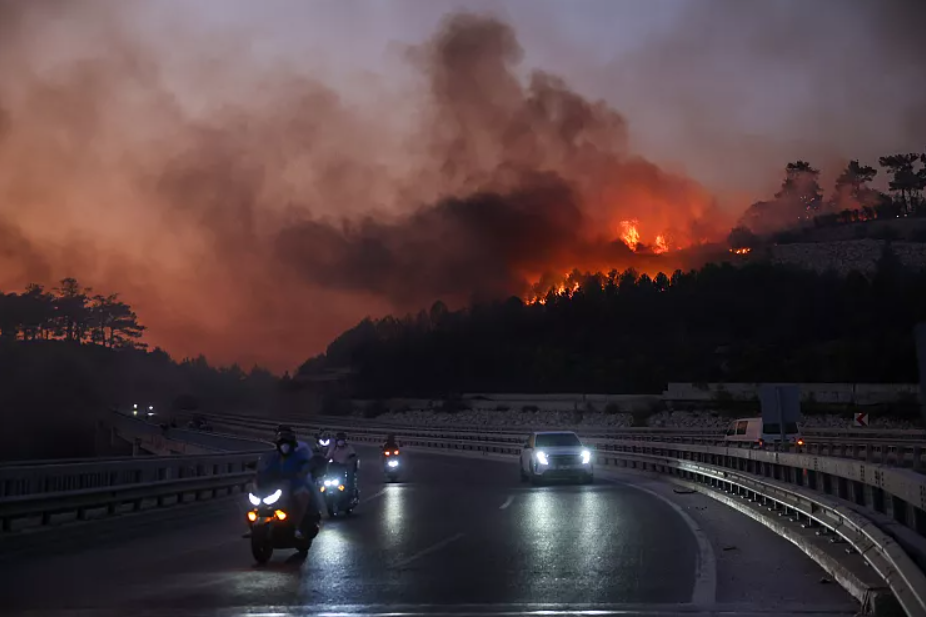
Researchers found that the hot, dry and windy conditions that drove the blazes were made about 10 times more likely and 22% more intense because of human-caused warming. They warn that as the climate heats further, Europe will face increasingly severe fire seasons that strain firefighting capacity.
The findings come during Europe's worst wildfire year on record. By 26 August, more than 1 million hectares of land had burned – an area larger than Cyprus – according to the European Forest Fire Information System (EFFIS).
Rising toll in Türkiye, Greece and Cyprus
Hundreds of fires broke out across the eastern Mediterranean in June and July. Türkiye was hardest hit, with 17 deaths, including firefighters caught when winds suddenly shifted. Two people died in Cyprus and one in Greece, while more than 80,000 residents and tourists were forced to evacuate.
Scientists said climate change primed the landscape by reducing winter rainfall (down about 14% since pre-industrial times), drying vegetation and intensifying summer heat. A week of "highly evaporative" conditions – which rapidly desiccate plants – is now 18% more intense and 13 times more likely due to global warming.
A worsening cycle
The WWA study also linked extreme Etesian winds, which fanned the flames, to stronger high-pressure systems made more likely by climate change. Without warming, such fire-driving conditions would occur once every century; today, they are expected roughly once every 20 years.
With the planet already at 1.3°C of warming, researchers warned that extreme blazes are pushing firefighting resources to their limit. Current policies put the world on track for about 2.6°C of warming this century, which would make these dangerous conditions nine times more likely and 25% more intense.
Can Europe cope?
Fire suppression has so far relied heavily on fleets of firefighters, aircraft and cross-border reinforcements – nearly 650 international firefighters were deployed to high-risk areas this year. But experts stress that this is no longer enough.
"The focus must shift to prevention," said Maja Vahlberg of the Red Cross and Red Crescent Climate Centre. That means managing vegetation, raising community awareness, and preparing urban areas on the wildland–urban fringe for the likelihood of larger, more destructive fires.
WWA is now conducting a similar analysis of Spain's record-breaking fires in August, where scientists also expect to find the fingerprints of climate change.